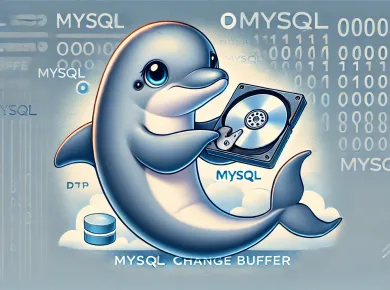Recently I saw a MySQL Stored Function requirement on Experts-Exchange for converting date into some specific words format.
You may find MySQL function for date to words conversion online; even udfs might be ready, but I decided to write my own.
I wrote this simple function mainly based on SELECT CASE to convert dates in to words as follows:
mysql>SELECT date_to_words(‘2010-05-08’);
Eighth Day of May Two Thousand Ten
Download sql file below the code.
DELIMITER $$
DROP FUNCTION IF EXISTS `date_to_words` $$
CREATE FUNCTION `date_to_words` (mydate DATE) RETURNS VARCHAR(100)
DETERMINISTIC
BEGIN/* Converts date into words */
DECLARE yr INT;
DECLARE dateval INT;
DECLARE thousand INT;
DECLARE hundred INT;
DECLARE tens INT;DECLARE tensword VARCHAR(10);
DECLARE onesword VARCHAR(10);
DECLARE thousandsword VARCHAR(20);
DECLARE hundredsword VARCHAR(20);
DECLARE datevalsword VARCHAR(20);SET yr=year(mydate);
SET dateval=day(mydate);/* DAY TO WORDS */
SELECT CASE dateval
WHEN 1 THEN ‘First’
WHEN 2 THEN ‘Second’
WHEN 3 THEN ‘Third’
WHEN 4 THEN ‘Fourth’
WHEN 5 THEN ‘Fifth’
WHEN 6 THEN ‘Sixth’
WHEN 7 THEN ‘Seventh’
WHEN 8 THEN ‘Eighth’
WHEN 9 THEN ‘Ninth’
WHEN 10 THEN ‘Tenth’
WHEN 11 THEN ‘Eleventh’
WHEN 12 THEN ‘Twelfth’
WHEN 13 THEN ‘Thirteenth’
WHEN 14 THEN ‘Fourteenth’
WHEN 15 THEN ‘Fifteenth’
WHEN 16 THEN ‘Sixteenth’
WHEN 17 THEN ‘Seventeenth’
WHEN 18 THEN ‘Eighteenth’
WHEN 19 THEN ‘Nineteenth’
WHEN 20 THEN ‘Twentieth’
WHEN 21 THEN ‘Twenty-first’
WHEN 22 THEN ‘Twenty-second’
WHEN 23 THEN ‘Twenty-third’
WHEN 24 THEN ‘Twenty-fourth’
WHEN 25 THEN ‘Twenty-fifth’
WHEN 26 THEN ‘Twenty-sixth’
WHEN 27 THEN ‘Twenty-seventh’
WHEN 28 THEN ‘Twenty-eighth’
WHEN 29 THEN ‘Twenty-ninth’
WHEN 30 THEN ‘Thirtieth’
WHEN 31 THEN ‘Thirty-first’
END into datevalsword;/* YEAR TO WORDS */
set thousand=floor(yr/1000) ;
set yr = yr – thousand * 1000;
set hundred = floor(yr / 100);
set yr = yr – hundred * 100;IF (yr > 19) THEN
set tens = floor(yr / 10);
set yr = yr mod 10;
ELSE
set tens=0;
END IF;SELECT CASE thousand
WHEN 1 THEN ‘One’
WHEN 2 THEN ‘Two’
WHEN 3 THEN ‘Three’
WHEN 4 THEN ‘Four’
WHEN 5 THEN ‘Five’
WHEN 6 THEN ‘Six’
WHEN 7 THEN ‘Seven’
WHEN 8 THEN ‘Eight’
WHEN 9 THEN ‘Nine’
END INTO thousandsword;
SET thousandsword=concat(thousandsword,’ Thousand ‘);SELECT CASE hundred
WHEN 0 then ”
WHEN 1 THEN ‘One’
WHEN 2 THEN ‘Two’
WHEN 3 THEN ‘Three’
WHEN 4 THEN ‘Four’
WHEN 5 THEN ‘Five’
WHEN 6 THEN ‘Six’
WHEN 7 THEN ‘Seven’
WHEN 8 THEN ‘Eight’
WHEN 9 THEN ‘Nine’
END INTO hundredsword;
if (hundredsword<>”) then
SET hundredsword=concat(hundredsword,’ Hundred ‘) ;
else
set hundredsword=”;
end if;/*TENS To WORDS*/
SELECT CASE tens
WHEN 2 THEN ‘Twenty’
WHEN 3 THEN ‘Thirty’
WHEN 4 THEN ‘Fourty’
WHEN 5 THEN ‘Fifty’
WHEN 6 THEN ‘Sixty’
WHEN 7 THEN ‘Seventy’
WHEN 8 THEN ‘Eigthy’
WHEN 9 THEN ‘Ninety’
ELSE ”
END INTO tensword;/*ONES To WORDS*/
SELECT CASE yr
WHEN 0 THEN ”
WHEN 1 THEN ‘One’
WHEN 2 THEN ‘Two’
WHEN 3 THEN ‘Three’
WHEN 4 THEN ‘Four’
WHEN 5 THEN ‘Five’
WHEN 6 THEN ‘Six’
WHEN 7 THEN ‘Seven’
WHEN 8 THEN ‘Eight’
WHEN 9 THEN ‘Nine’
WHEN 10 THEN ‘Ten’
WHEN 11 THEN ‘Eleven’
WHEN 12 THEN ‘Twelve’
WHEN 13 THEN ‘Thirteen’
WHEN 14 THEN ‘Fourteen’
WHEN 15 THEN ‘Fifteen’
WHEN 16 THEN ‘Sixteen’
WHEN 17 THEN ‘Seventeen’
WHEN 18 THEN ‘Eighteen’
WHEN 19 THEN ‘Nineteen’
END into onesword;return concat(datevalsword, ‘ Day of ‘, date_format(mydate,’%M’),’ ‘,thousandsword,hundredsword, tensword,’ ‘,onesword);
END $$DELIMITER ;
Download SQL Code for converting date to words.date_to_words.sql

4 comments
Hi is there any way to convert from words to date. any logic for this. I need know the date from Words Like: Twenty-third November Two Thousand should be : 23-11-2000 is it possible?
There are times when I have to ask myself – where is the most appropriate place to have logic reside. When it comes to converting numeric dates to words like this, it seems to me that this is something the database server should not be doing on enterprise-level servers. There are a lot of things that a MySQL server *can* do that it really should not attempt to do.
RDBMS’s are an expensive resource in most production environments while web and application servers tend to be far less expensive. Think about it this way – is it worth the extra processing on the database server as well as the extra memory that will be consumed by handling this processing there versus doing the same activity in a library that is shared on the application server, web server, or even better, on the client’s system? Would it be cheaper and potentially faster to do the extra work to implement the solution at some layer above the database? In this case, my guess is that it would be a lot cheaper to let the application code handle these transformations.
Note that MySQL does not pre-compile stored procedures at all so it will have to re-interpret the code in a stored procedure every time it’s called. That ain’t cheap. There may be a slight performance gain from caching, but I think you’ll find that an application can handle these transformations much more efficiently.
Well they’re slower as obvious differences between compiled sql and c code. 🙂
Check http://www.mysqlperformanceblog.com/2010/09/06/udf-vs-mysql-stored-function/
mysql stored function is much slower than ufds?